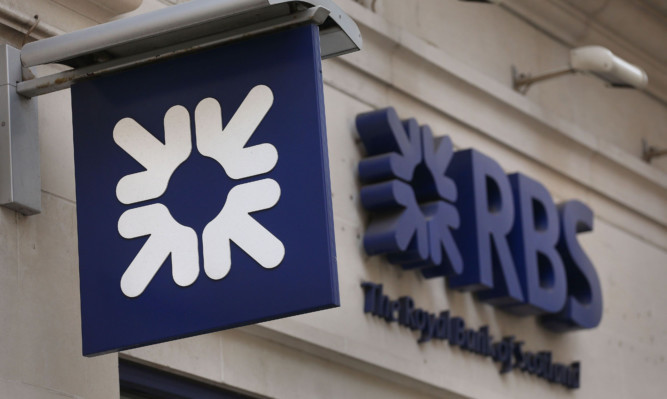The Treasury has sold the first tranche of shares in Royal Bank of Scotland for £2.1 billion, but the taxpayer has made a loss of around £1 billion on the sale.
UK Financial Investments, the body that holds the Government’s RBS stake, said it had offloaded 5.4% of RBS at 330p a share – far short of the 502p price paid by the Government when it bailed out the bank at the height of the financial crisis.
The move has reduced the Government’s stake in the group from 78.3% to around 72.9%.
Chancellor George Osborne said the £2.1 billion would be used to pay down Britain’s national debt.
He said: “This is an important first step in returning the bank to private ownership, which is the right thing to do for the taxpayer and for British businesses: it will promote financial stability, lead to a more competitive banking sector, and support the interests of the wider economy.”
Labour has raised concerns over the Government’s rush to offload its stake in RBS when the shares are still languishing below the bailout price paid.
A previous report by investment bank Rothschild said that, if all of the Government’s stake was sold at current prices, the taxpayer would lose around £7 billion.
However, UKFI estimates that the RBS share price will rise as the firm returns to health and more stock is sold to the market.
Mr Osborne said: “The right thing to do for the economy and for taxpayers is to start selling off our stake”.
He added in a tweet that he had the backing of Bank of England governor Mark Carney for the move.
Mr Osborne said on Twitter: “RBS bailed out by last gov. This gov is selling it back. Bank of England Governor says selling now is in ‘interests of the wider economy’.”
Shadow Treasury minister Barbara Keeley questioned the Government’s “rush to sell” the first tranche of RBS shares.
She said Labour would have held onto them as further improvements in the economy could have boosted their price.
Speaking on BBC Radio 4’s Today programme, Ms Keeley said: “There could be a loss of £1 billion on this part of the sale, and you have to ask: where are the priorities of a Government which has just given up on its cap on care costs leaving thousands paying down their own social care and losing a billion pounds overnight?
“That would have gone a long way towards helping people pay for social care.”
Told it was a long-term approach, Ms Keeley replied: “That’s being said but I think the most important question for the taxpayer is: are we getting good value for our money?
“This used to be something the Chancellor used to care about. He said he’d only sell these RBS shares when we get good value. Clearly that’s not now. We’ve possibly lost £1 billion overnight.”
She added: “The estimate was if the price was £3.30 (per share) then there would be a loss of £1 billion on the sale. There’s so much more that could be done with £1 billion. It’s cavalier for it to be casually lost overnight in this way.”
